Art installations by young Albanian artists raise community awareness on gender-based violence
Date: 17 December 2019
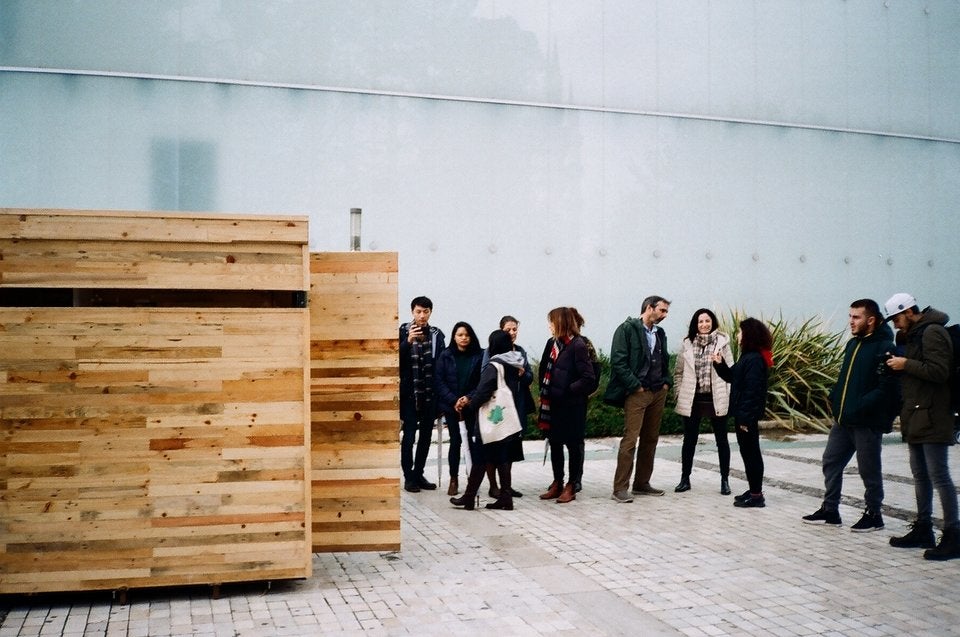
On 3 December, an unusual object was placed in the main pedestrian street in Tirana. A wooden structure in the form of a movable house was erected in which people were invited to enter and have a unique experience. The interior was filled with artworks that elaborated the pervasive issue of violence against women and girls at home or in public spaces. The wooden structure was a street art exhibition called “Kuboiddy” Gallery. UN Women supported the exhibition, which was conceptualized by young artists as part of the 16 Days of Activism against Gender-Based Violence. The wooden structure installation hosted four different exhibitions by five women artists, involving various mediums and served as a space for introspection, reflection and experience.
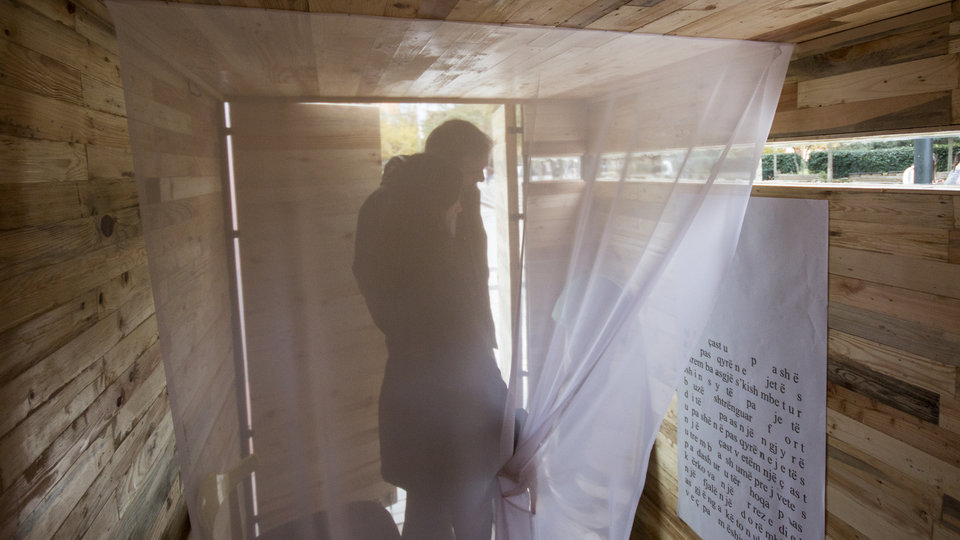
“The room”
The gallery opened with the artwork of 23-year old Rea Lemnusha, an activist, urban planner and content creator. Her artwork, called “The room”, was a scene typifying violence that included fallen objects and broken glasses. Everything was painted in yellow to symbolize that unjustified jealousy often ignites violence against women and girls. A mirror and poetry had a separate space in the cube, symbolizing what a woman sees in the mirror after experiencing violence.
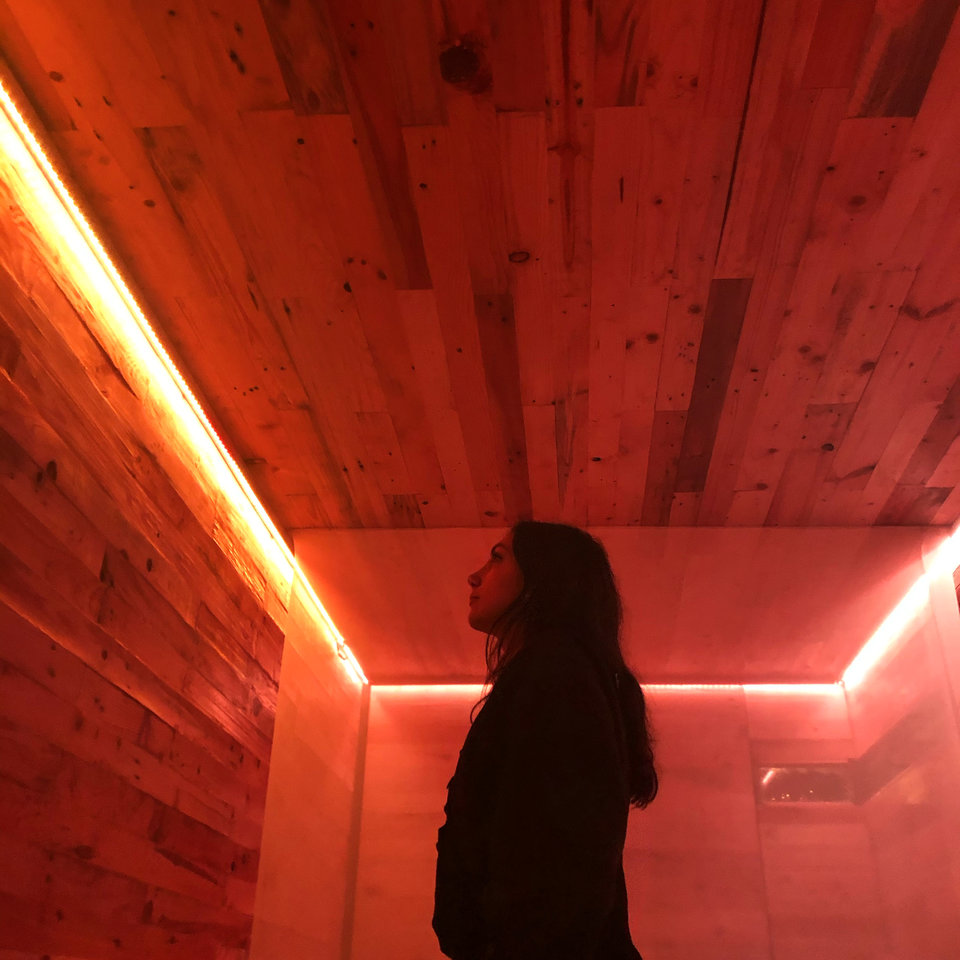
“My aim was to call people’s senses, make them experience what happens when violence occurs. There was music in the background, shouts and voices as if they were coming from your neighbor’s door. It had an impact because there were people who couldn’t stay in the room; the feeling was too strong. We hope we have given the right message: you can’t stay indifferent anymore, because violence affects us all”, stressed Rea, who is also the curator of the Kuboiddy Gallery.
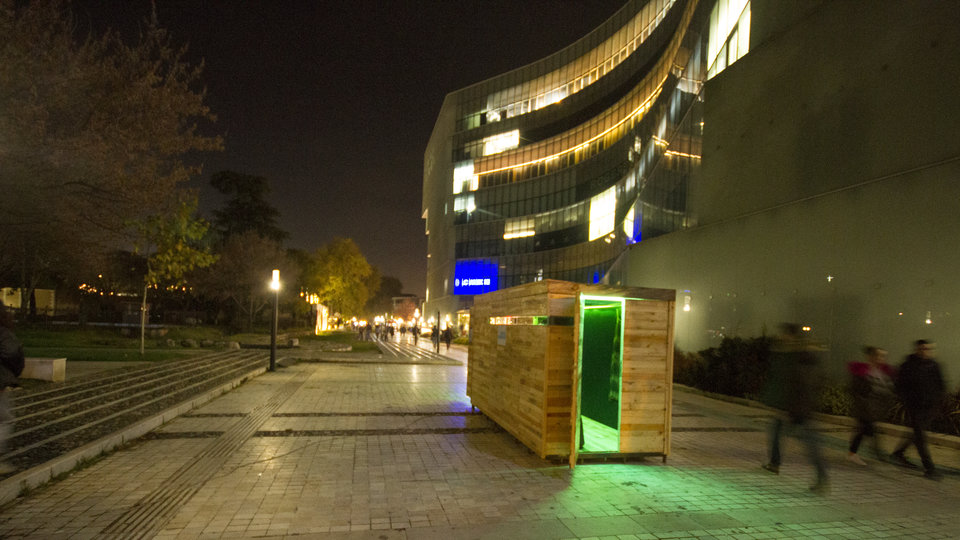
Rea remembers a visitor, who said: “We already know, this happens, but we can’t do anything”. Rea tried to convince and inform her about the national helpline for women and girls, 116 117, or the numbers of the police placed outside the cube gallery. “My art is directed to adults because we as a young generation are more aware of our rights due also to social media impact. Adults are trapped into this indifference culture, but think how many lives you could save intervening in violent situations. I am not saying that we can all be heroes, but in a certain situation, you can be an influencing character. People expect to be heroes or anti- heroes; I think we should be something in between”, emphasized Rea.
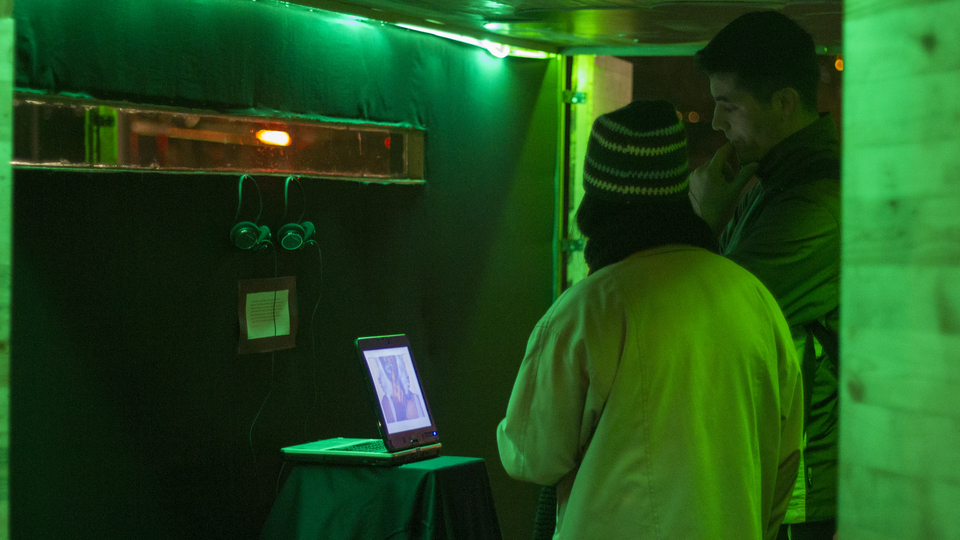
“Girlstrof”
The second artist of Kubboidy was Livia Tice, a 22-year old psychology student. Her installation, called “Girlstrof”, the name derived from the combination of the words ‘girl,’ and “catastrophe’ featured video, print and sound works. It ushered in individual visitors into the cube to have a better experience and impact. The central piece of her work was a dress owned by her friend who experienced violence last summer. In addition, an audio recording with street harassment, offensive, discriminatory and sexist words that are usually addressed by men to women, was part of the installation. Livia also showcased a video performance and handmade picture collages, printed in large sizes. “The feedback has been positive but also hesitant. The passersby who asked about the cube were mostly foreigners, but some refused to enter when they knew the theme. It was too strong for them”, said Livia.
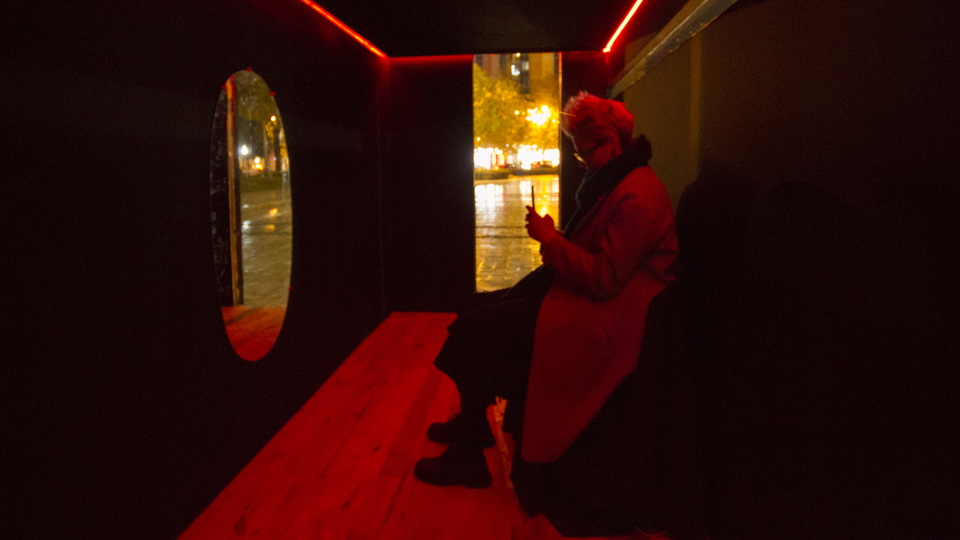
“Reflection”
The audio element by the Buza sisters was the most powerful of the installations. Dea, a 28-year-old architect and Era, a 24-year-old graphic and audio designer, wanted people to experience the feeling of a woman under pressure. Expressions, courses and catcalling that women hear during their lifetime blasted out from the audio system inside the cube. “The recording was three minutes long, but people couldn’t stay inside until the end. It was a very intensive experience, even though it was short. We see it as a challenge and will use this installation in the future as a tool to raise awareness for women’s rights”, said Dea.At the center of the cube, there was a mirror, which served as a metaphor for facing ourselves. The lighting allowed for an intimate atmosphere to facilitate dialogue with the inner self.
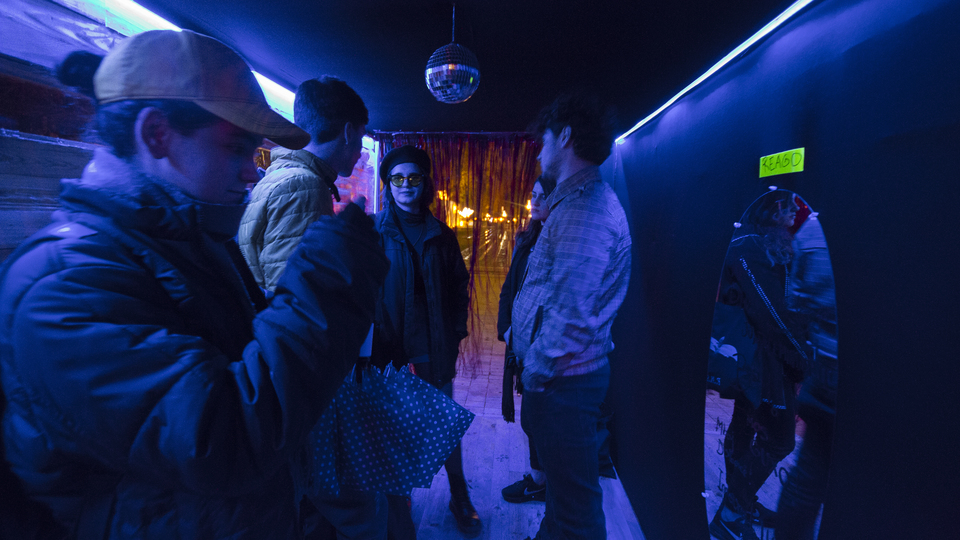
“Do not act like #$%”
Ina Shkembi, a 22-year-old designer from Tirana, curated the last installation called “Do not act like #$%”. The concept was to recreate a night club with music in the background. The sound was mixed with aggressive and violent expressions that men usually address to women in clubs or parties. Ina explains that most of the people who visited the installation were amused at first listening to the music, but later shocked by the catcalls.
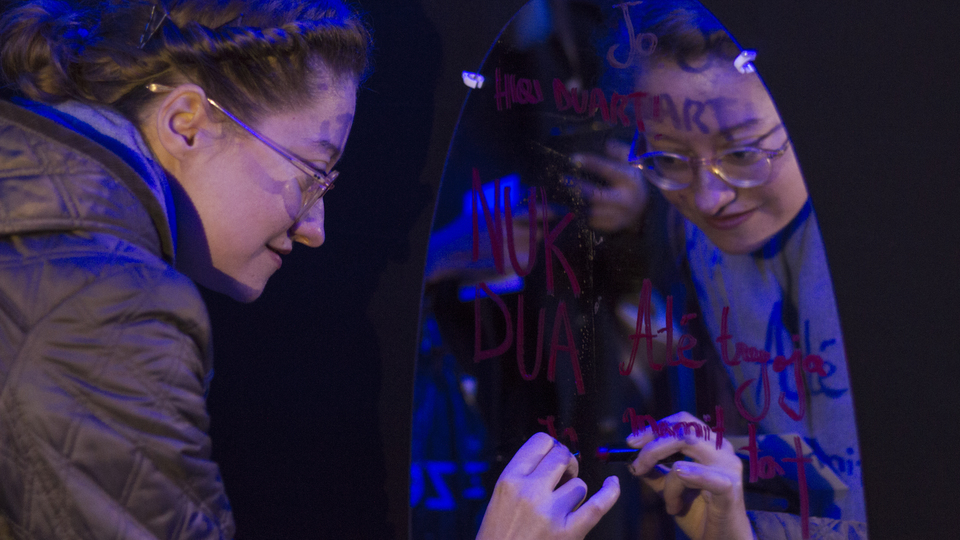
“I expect people to understand that words are not something easy to pass upon, one should be careful”, said Ina. She explains that the reaction has varied from laughter to irritation, someone became aggressive, some couldn’t stay inside for long and others ran off. ‘Enough! Stop it! Do not dare! No!’- were only some of the reactions written by visitors on the mirror that connects all the installations.